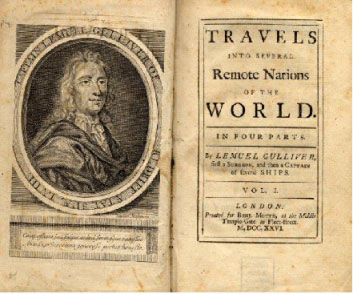Meet the expert
Dr Greg Lynall - The Relationship between Literature, Science and Technology

Greg Lynall’s main area of research interest is the relationship between literature and science, particularly in the eighteenth century. His recent monograph, Swift and Science: The Satire, Politics, and Theology of Natural Knowledge, 1690-1730 (Palgrave, 2012), shortlisted for the British Society for Literature and Science book prize, explores how literature, and particularly satire, can be an active participant in scientific debate. Greg is a historicist in his approach, but also an advocate of why we should read Jonathan Swift’s works in the twenty-first century, since they remind us of the many political, social, and moral questions we must ask concerning the application and public communication of science, and make a convincing case for the importance of imagination to the world of fact.
In March 2013, Greg spoke about some of his work in a public history of science lecture at the Royal Society. Greg’s talk, ‘Laputian Newtons: the science and politics of Gulliver's Travels’, interrogated some assumptions about Swift’s animosity towards scientific enquiry, arguing that much of what Swift wrote about natural philosophy was bound up with other concerns, especially the personal and political. A blog inspired by Greg’s lecture can be found on The Guardian website.
Greg is currently writing a cultural history of solar technology, and will be collaborating with the Centre for Alternative Technology (Machynlleth, Powys) in research and public engagement regarding how the long history of ‘alternative’ energy might contribute to its future. He is also working on a biography of a great forgotten polymath: Dr John Arbuthnot, satirist, mathematician, and physician to Queen Anne. As a member of the Faculty’s Eighteenth-Century Worlds research centre, Greg is keen to foster collaborative research on Liverpool’s significant literary heritage between the University and local civic institutions.
